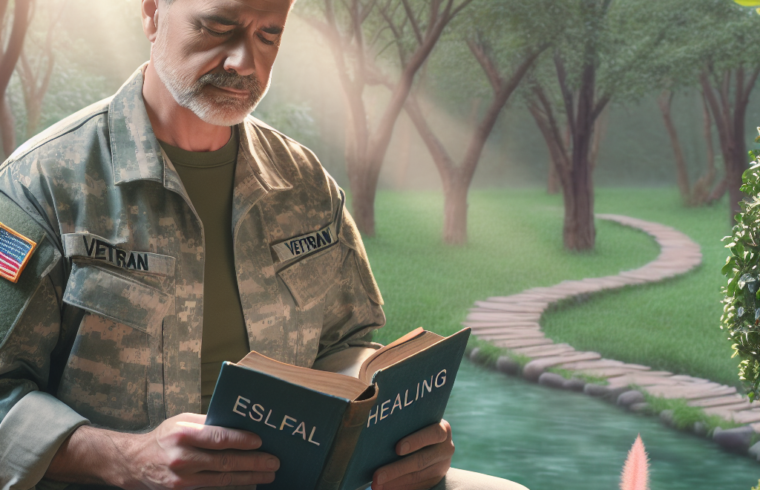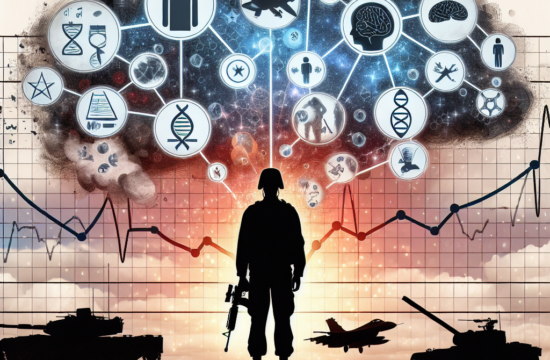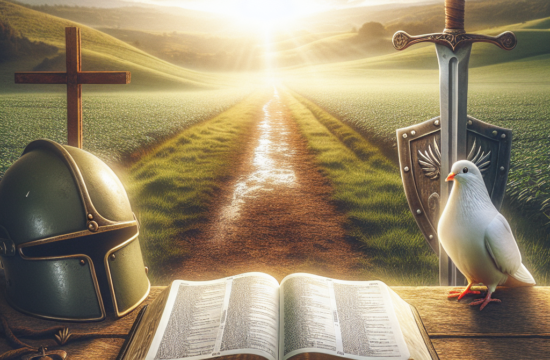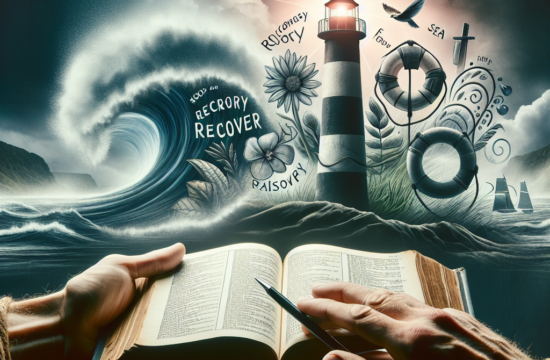==> Thank you for reading this post! Click Here If you are looking for support and Victory over PTSD.
Healing Emotional Wounds: A Veteran’s Path to Wellness
- Emotional Resilience in Veterans
- Support Systems and Community
- Healing Through Self-Expression
- Finding Professional Help
Emotional Resilience in Veterans
Understanding Emotional Resilience
Let’s kick things off by talking about emotional resilience. It’s one of those terms you might have heard tossed around, but what does it really mean for veterans like me? Well, I can tell you from my own journey that it’s about bouncing back from tough experiences. I’ve faced trauma that stuck with me long after I hung up my boots, but resilience helped me take those experiences and learn from them.
Ever been in a situation where you thought, “How am I going to get through this?” That’s where building emotional resilience comes in. It’s the strength to face challenges head-on, and it’s not something you’re born with—it’s cultivated over time through mindfulness, self-reflection, and sometimes, good old-fashioned grit.
We build resilience by nurturing our emotional muscles, much like we’d do in a gym. It can be as simple as practicing gratitude or taking the time to breathe when life gets overwhelming. And you know what? Seeing my own resilience grow has been incredibly empowering.
Strategies for Building Resilience
So how can we build this elusive emotional resilience? I’ve found that creating a daily routine that revolves around self-care really helps. This could mean setting aside time each morning to meditate or journal. Writing down my thoughts has allowed me to spill out challenges and emotions that have been bottled up inside me. It’s pretty freeing!
Another important piece is staying connected with others. Ever notice how just chatting with a good friend can lift your spirits? I’ve made it a priority to check in with my buddies regularly—those bonds really keep us grounded.
And let’s not forget about recognizing our own strengths. Looking back at the hurdles I’ve overcome has shown me that I can do hard things. Sometimes we just need to remind ourselves of our ability to endure and thrive.
The Role of Mindfulness in Healing
Mindfulness has been a game changer for me. Simply put, it’s about being present and aware, without judgment. During my toughest days, taking a moment to be mindful has helped calm my racing thoughts and ease anxiety. I remember one day sitting outside, listening to the winds and watching the leaves; I felt a sense of relief wash over me.
Incorporating mindfulness techniques into my daily life has been essential. I learned some quick and easy breathing exercises that I can whip out whenever I feel stressed. They help me ground myself and regain focus, even in chaotic moments.
Finally, practicing mindfulness helps me appreciate the little victories in life. Whether it’s finishing a tough workout or simply getting up and making my bed, those small wins matter. With mindfulness, I’m able to celebrate them, adding to my emotional resilience.
Support Systems and Community
The Importance of Connection
When I first started dealing with emotional scars, I didn’t realize how much I leaned on my support systems. We veterans often have this tough exterior, but let me tell you, it’s perfectly okay to lean on friends and family. They’re there to catch you when you stumble, and trust me, that matters.
Creating a solid support network means surrounding yourself with people who understand your journey. It doesn’t have to be a big group; sometimes, a few close friends who get you can make all the difference. Reaching out has been one of the best decisions I’ve made.
Plus, sharing experiences with fellow veterans can be profound. You know, the “been there, done that” vibe creates an instant connection. It’s kinda like being a part of a club where you get unconditional support, advice, and camaraderie.
Finding Your Tribe
Finding the right group or community can sometimes feel daunting, but it’s completely worth it. I became involved in local veterans’ organizations, where I met many who were going through similar paths. Just hearing someone say, “I get what you’re feeling” can make you feel less alone.
Engaging with these communities also opens doors to new friendships. I often participate in workshops, game nights, or even just coffee hangouts. These moments are invaluable and contribute immensely to the healing process.
Also, online forums have become a lifesaver for many of us. I can participate in discussions, share my experiences, and find solace in the connections I make, even when meeting in person isn’t an option.
Utilizing Community Resources
I can’t stress enough how much community resources can aid healing. Many communities have organizations dedicated to veterans, offering everything from counseling to recreational activities. Engaging with these services can improve mental health and foster a sense of belonging.
Volunteer work can also be a remarkable outlet. Giving back not only feels good, but it can also forge new connections within the community that help reinforce my own healing journey.
Moreover, just being involved creates a ripple effect, helping others feel less isolated. When we come together to support one another—watch out! That’s when real change happens.
Healing Through Self-Expression
Exploring Different Forms of Expression
Self-expression has been another cornerstone of my healing journey. When I decided to channel my emotions into art, it transformed my world. I picked up a paintbrush and started creating, even if it was just splattering colors on a canvas. It felt therapeutic!
Writing has also been a compelling outlet for me. Whether I’m journaling about my experiences or crafting stories, these practices allow me to explore my emotions deeply and creatively. I think of writing as my personal therapy session—no judgment, just freedom.
Get Started with Recovery! Visit us for more Information and Support
In addition to art and writing, music has been a crucial part of self-expression. Whether I’m strumming a guitar or diving into my favorite tunes, music resonates on levels that words sometimes can’t reach. It’s like inviting emotions to dance with me rather than letting them weigh me down.
Sharing Your Story
One thing I’ve learned from sharing my story with others is that vulnerability can actually be powerful. I started talking openly about my experiences, not just with close friends but in support groups as well. The feedback I received showed me that I’m not alone in this journey.
Offering insights into my struggles and victories helped others feel like they could share their own. Let me tell you, there’s something liberating about voicing your truth. It not only helps me but also reminds others that it’s okay to be human.
Many veterans find that speaking at community events or writing blogs allows them to connect with a wider audience. Just imagine the impact of reaching even one person who desperately needed to hear your words—it’s amazing!
The Healing Power of Creativity
Creative pursuits have an innate ability to heal. I’ve come across many studies about art therapy and how it helps individuals express and understand their emotions. Whether it’s painting, sculpting, or writing poetry, creativity paves a way for catharsis.
Engaging with creative outlets has allowed me to process trauma in a way that feels safe and controlled. It’s almost like I’m creating something beautiful out of pain. And you know what? That’s some powerful stuff!
Additionally, sometimes it’s just about the process, not the end product. The mere act of creating can be incredibly liberating and soothing. That alone has helped me find pockets of peace in chaotic times.
Finding Professional Help
Recognizing When You Need Help
For anyone struggling with emotional wounds, recognizing when you need professional help can be a vital step. I remember the day it hit me; I was feeling overwhelmed and knew I needed to reach out to someone who could help me navigate my feelings.
It’s totally normal to feel hesitant about seeking professional help. For me, admitting it was tough; I kept thinking, “I should be able to handle this on my own.” But let me tell you—getting help doesn’t mean you’re weak; it means you’re strong enough to reach out!
Understanding that it’s okay to ask for help is crucial. We can’t fight our battles alone sometimes, and seeking guidance from a professional can guide us through the darkest moments.
Types of Professional Support Available
Finding the right type of support that fits your needs is essential. For me, therapy has been life-changing—I’ve seen licensed therapists who use different modalities, like cognitive-behavioral therapy and EMDR, which have really helped me process my trauma.
Support groups are another excellent resource. Being in a group where everyone shares similar experiences has provided a comforting space for me. It’s incredibly empowering to find camaraderie while seeking healing.
There are also alternative therapies like acupuncture or mindfulness-based practices, which I’ve learned can complement traditional therapy approaches. Exploring different modalities has creatively supported my wellness journey.
Building a Therapeutic Relationship
One of the best pieces of advice I can give you is to find a therapist you click with. It’s okay to shop around until you find someone who resonates with you. Building a strong therapeutic relationship has made therapy more effective for me.
Trust is key; it allows you to share your deepest challenges without holding back. It creates an environment where you can truly explore and heal from emotional wounds. My therapist has become a trusted ally in my journey, and that’s made all the difference.
Keep in mind that therapy isn’t just about resolving issues; it’s also about personal growth and understanding yourself better. Each session has been an opportunity to learn more about who I am and how I can heal.
FAQ
1. What is emotional resilience, and how can veterans develop it?
Emotional resilience is the ability to adapt and bounce back from difficult experiences. Veterans can develop it through mindfulness practices, maintaining supportive friendships, and recognizing their strengths over time.
2. How can community support help in the healing process?
Community support provides connection, understanding, and shared experiences. Joining veterans’ organizations or attending support groups can help veterans feel less isolated, offering both resources and camaraderie during the healing journey.
3. Why is self-expression important for emotional healing?
Self-expression allows emotional release and processing of feelings. Engaging in creative outlets like art, writing, and music can facilitate healing by providing a safe space to explore emotions without judgment.
4. When should veterans consider seeking professional help?
Veterans should consider seeking help when they feel overwhelmed, are struggling to cope with their emotional challenges, or find that self-help strategies aren’t enough. It’s a strong step to recognize one’s need for support in the healing journey.












